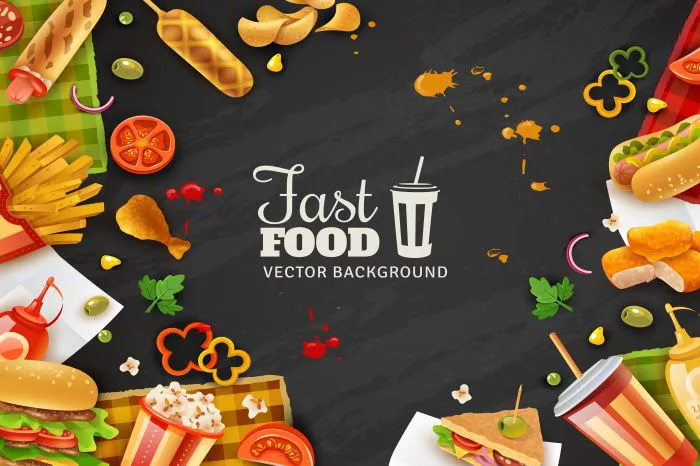In a world where time is often more valuable than money, fast food presents a seemingly perfect solution: it’s quick, it’s convenient, and it’s consistent. Globally, fast food joints serve millions of customers every day, from bustling cities to sleepy towns, indicating a universal appeal that transcends cultural and economic boundaries. This article explores the myriad reasons behind the popularity of fast food, delving into not just the obvious factors like speed and cost, but also the deeper social and psychological drivers that keep people coming back to these quick-serve eateries.
Time Constraints And Convenience
One of the primary reasons people choose fast food is convenience. In today’s fast-paced world, time is often limited, and many individuals find themselves juggling work, family responsibilities, and social activities. Fast food offers a quick and hassle-free dining option, allowing people to grab a meal on the go without the need for lengthy preparation or cooking time.
Affordability
Another significant factor that draws people to fast food is its affordability. In comparison to sit-down restaurants or home-cooked meals, fast food is often perceived as more budget-friendly. This makes it an attractive option for individuals and families looking to save money on dining expenses.
Wide Variety of Options
Fast food restaurants typically offer a wide variety of menu options to cater to diverse tastes and preferences. From burgers and fries to salads and wraps, there’s something for everyone. This variety ensures that customers can find something they enjoy, making fast food a convenient choice for groups with different food preferences.
Marketing And Brand Recognition
The extensive marketing efforts of fast food chains play a significant role in attracting customers. Eye-catching advertisements, promotional offers, and brand recognition create a sense of familiarity and comfort, prompting people to choose familiar fast food establishments over other dining options.
Availability And Accessibility
Fast food restaurants are ubiquitous, with outlets located in malls, shopping centers, airports, and along major highways.
This widespread availability makes it easy for people to access fast food regardless of their location, further enhancing its convenience factor.
Cravings And Comfort Food
For many individuals, fast food holds nostalgic value and serves as a comfort food option. The familiar flavors and textures of popular fast food items can evoke childhood memories or provide a sense of indulgence and satisfaction, making it a go-to choice during times of stress or emotional need.
Perceived Time Savings
In addition to actual time savings, there is a perceived notion that fast food saves time compared to cooking at home or dining at a traditional restaurant. This perception, coupled with the convenience of drive-thru services and quick service counters, encourages people to opt for fast food when they’re pressed for time.
Social And Cultural Influence
Fast food has become deeply ingrained in modern culture, with its presence in movies, television shows, and social media influencing consumer preferences. The social aspect of dining out at fast food restaurants with friends or family also contributes to its popularity, as it provides a casual and relaxed setting for social interactions.
Customization And Control
Many fast food chains offer customization options, allowing customers to tailor their meals to suit their dietary preferences or restrictions.
This level of control appeals to individuals who want flexibility in their food choices without sacrificing convenience.
Innovations in Menu Offerings
Fast food restaurants continuously innovate their menu offerings to stay competitive and appeal to changing consumer tastes. This includes introducing healthier options, plant-based alternatives, and seasonal promotions, catering to a broader range of dietary preferences and lifestyle choices.
Conclution
Despite the criticisms and health concerns associated with fast food consumption, its widespread popularity persists due to the factors mentioned above. Understanding why people choose fast food sheds light on the complex interplay of convenience, affordability, marketing influence, and cultural factors that shape our dining choices in the modern world.
Understanding why people choose fast food requires looking beyond the surface of speed and economy. It involves recognizing the deeper social, cultural, and psychological factors that influence modern eating habits. As long as these factors remain relevant, fast food will likely continue to be a major part of the global diet. Despite health advocates’ concerns, the fast food industry shows adaptability and resilience, continually evolving to meet changing consumer demands while retaining the core elements of convenience and affordability that originally defined its success.


